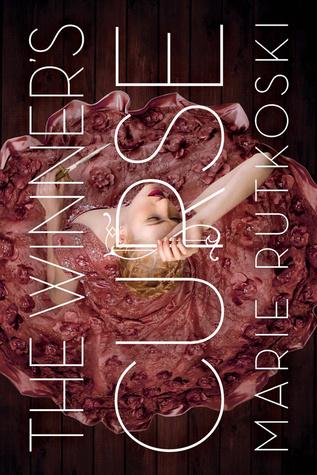The Winner’s Curse–A Book Review:

December 7, 2015
*Spoiler Alert. This book review contains several revealing details to the plot.
The Winner’s Curse by Marie Rutkoski is a story of a pair of star-crossed, yet dimly-fated lovers destined to be each other’s enemies.
“ The Winner’s Curse is a wonderfully-written beautiful story. The characters are so complex and interesting,” said Connie Sun, grade 9, an avid reader of Rutkoski’s Winner’s Curse trilogy.
Kestrel and Arin, the main characters of the novel, are caught in a world of propriety and prejudice. Kestrel is the daughter of the high-ranking military official, General Trajan. Arin is a slave to an empire that has upheld his beloved country. At the beginning of the novel, Arin is sold to Kestrel as her slave; however, Arin plans to gather information to overthrow his tyrannical oppressors. This, of course, is the source of all conflict throughout the book. Despite his love for a girl who is a mere casualty of war, his vengeance runs deeper than his love.
The term ‘winner’s curse’ refers to the phenomenon that may occur in common value auctions, in which the winner wins the asset, but only by overpaying. The price paid could outweigh the actual value of the product. This concept is a strong apparent structure throughout the novel. Serving as both a literal and figurative reminder of the prices both Kestrel and Arin must pay. The question of the belonging of loyalty to either the law or love is a recurring idea raised throughout the novel. What must be sacrificed in order to maintain the other?
Towards the end of the novel, Kestrel must choose between her nationalistic and imperial beliefs that have been spoon-fed to her since birth or the compassion for a slave that shows no compassion for her people. The Herrani have overtaken Herran once again, and the high-class Valorians have been stripped of their wealth and dignity. Kestrel has been taken under Arin’s custody to ensure her safety. However, Kestrel eventually escapes to the capital and warns the emperor. In the end, Kestrel must agree to marry the emperor’s son in order for Arin to remain free. Kestrel’s sacrifice eventually comes to be ‘a steep emotional price’ instead of money for her country and for the one she loves.

